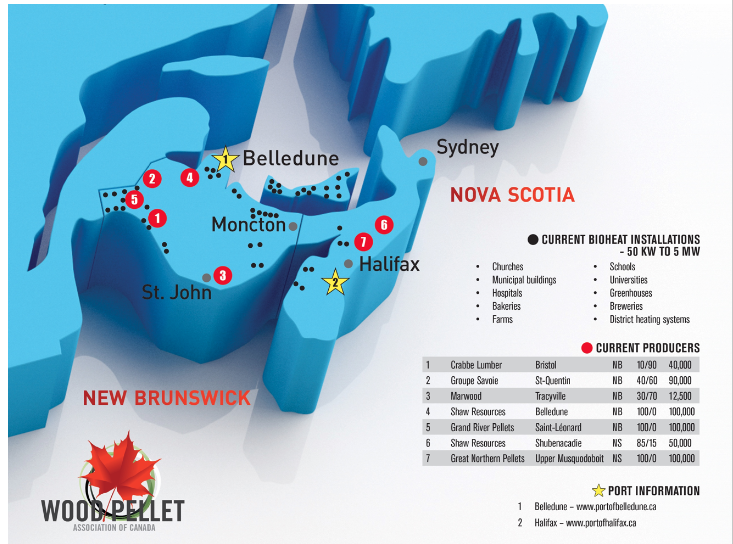
Tackling climate change through strategic alliances
April 29, 2021
By Gordon Murray

Atlantica Centre for Energy drives energy literacy
While the growth of the wood pellet industry has been largely driven by the global demand for clean, responsible and renewable energy, our success has also been predicated on a strong network of communities, local, provincial and federal governments and industry partners who are championing the merits of Canadian wood pellets domestically and internationally.
We recently had the opportunity to expand that network with the Atlantica Centre for Energy which is dedicated to increasing energy literacy for community leaders and stakeholders. The centre serves as a bridge between organizations operating in the energy sector and the community to help realize opportunities associated with energy resources in Atlantic Canada and the American Northeast. It provides a meeting ground for government, the education and research sectors, and the community at large to foster partnerships and engage in energy-related issues.
The opportunity came about by the intrepid eye of WPAC member, Jenna MacDonald, vice-president marketing, communications and government relations at the Port of Belledune, who identified the strategic opportunity between both WPAC and the Atlantica Centre for Energy. A number of WPAC members, including J.D. Irving (Grand River Pellets) and the Port, are members of the centre.
Our presentation on April 14 to the Atlantica Centre for Energy allowed WPAC and our Atlantic members to provide an overview of the growing demand internationally for Canadian wood pellets and also to have an in-depth discussion of the barriers domestically to growing our presence in the Canadian market. Advocating together, we have the opportunity to reduce CO2 emissions by as much as 10 million tonnes/year in Nova Scotia and New Brunswick alone – saving the two provinces $1 billion annually for household and commercial heating.
“Bioenergy is a viable heat and power source that can be part of both our regional and national strategies to adapt to climate change, while also supporting the sustainability of Canada’s forestry sector and our rural communities,” Neil Jacobsen, senior policy consultant at the centre, said.
We came out of the meeting with a strong commitment to work together on key policy issues such as the federal government’s Clean Fuel Standard which as proposed excludes wood biomass and discriminates against rural communities. You can see our presentation here
And don’t forget to register for our upcoming Maritime Bioheat Conference: Net Zero by 2030 on June 2, 2021.
Gordon Murray is executive director of the Wood Pellet Association of Canada (WPAC).
Print this page